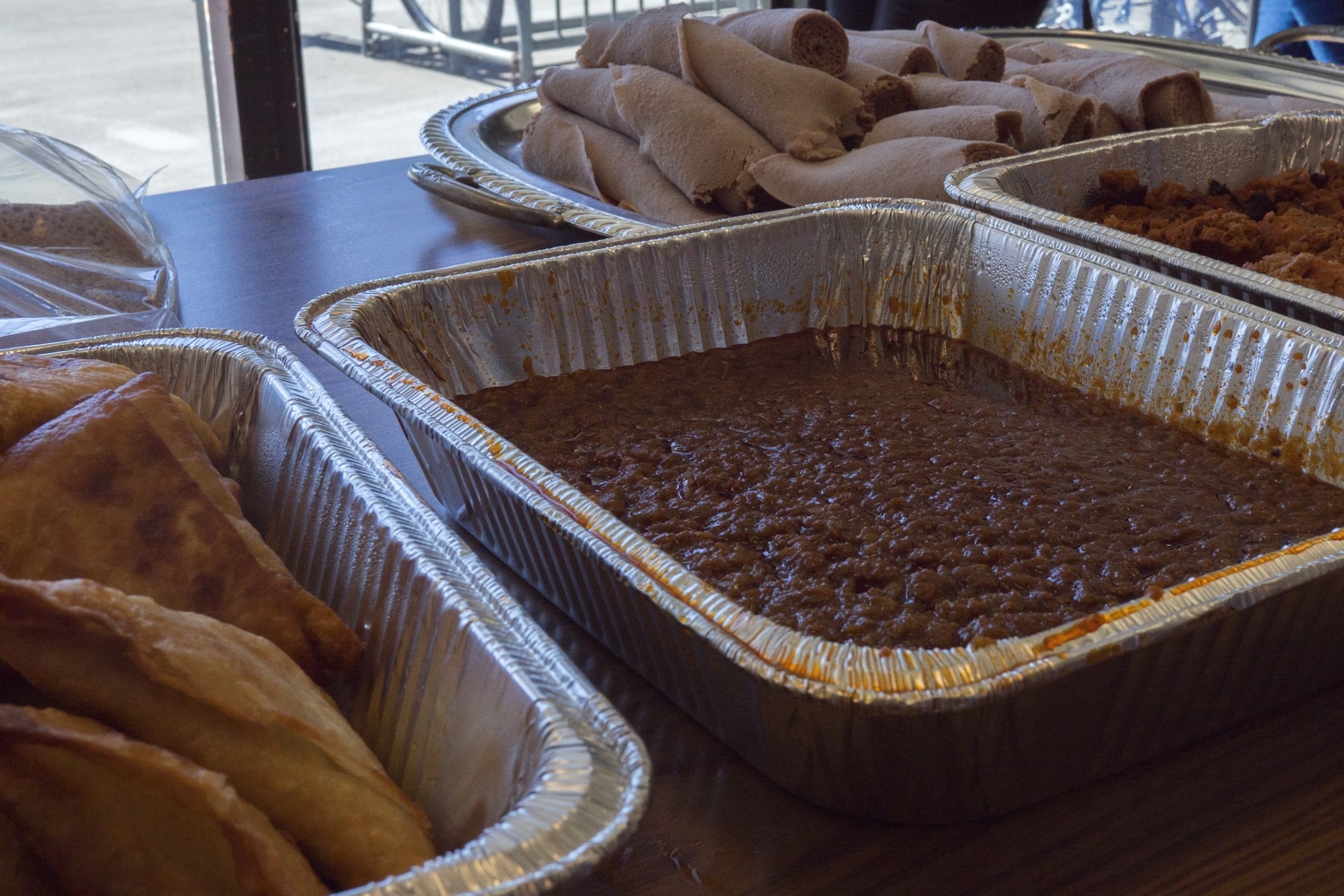
The Occidental College African Student Association (AFSA) held their Pan-African Table event Sunday, Sept. 23 in Pauley Hall, inviting students to eat and learn about East African cuisine. Approximately 20 students attended the event, which featured Ethiopian and Eritrean food from Buna Ethiopian Restaurant & Market in Los Angeles. AFSA executive board members Ashley Rivera (senior), EvaMarie David (senior), Dejah Williams (senior), Atnasia Mekonnen (junior) and Selasi Amoani (junior) organized and attended the event.
According to the group’s Facebook page, AFSA began in 2012 with the mission of highlighting African cultures and their diversity. In past years, AFSA has hosted general meetings and film screenings, held fundraisers and organized an annual fashion show.
“AFSA has always been a club that’s about teaching all of the Oxy community — it’s a club that’s open to everyone — and teaching them about African culture and traditions, about things that have happened in its history, like how the countries have come to where they are now,” Rivera said.
The Pan-African Table represented the first in a planned series of events by AFSA dedicated to highlighting African food, according to Rivera. The menu on Sunday included “misir wot,” a spicy red lentil stew; “quanta fir fir,” a combination of dried beef called “quanta” and a spicy tomato sauce (“fir fir”); “dulet,” a meaty-mixture of beef stomach; lentil-stuffed “sambosas” and “injera,” a spongy, sourdough-like flatbread.
“The food we have today is pretty typical [of] Ethiopian and Eritrean [food],” Mekonnen said. “It’s the basics.”
AFSA members made it clear they wanted to highlight the overlap between dishes and cultures in the process of curating the menu.
“[AFSA] really focuses on African, African American, Afro-Caribbean and African-South American — so both Americas,” Rivera said. “We really like to bring all those connections together, because once you start realizing those connections, you realize the connections in other countries, so like some of the dishes we have here served today, we really want people to focus on taste. We have two lentil dishes and two beef dishes, and we want people to see how these are lentils prepared that’s similar to Jamaica, or similar to the [Dominican Republic] or similar to India.”
Following the event on Sunday, AFSA intends to continue to introduce and explore culture through food.
“We have a lot of fun stuff planned, including bringing different foods to campus, and also just hosting different celebrations for various cultural groups that pertain to Africa,” David said.
According to Rivera, AFSA has tentative plans to collaborate with other student organizations such as the South Asian Students Association (SASA), Beauty Beyond Color and Black Student Alliance.
“This is just our first installation of this Pan-African extravaganza-thing, so this first one is like, ‘Welcome to our Pan-African Table’ sorts of food,” Rivera said.
While Sunday’s event focused on food, David noted that educating the community remains a high priority with AFSA events.
“Typically our meetings have an educational component. So, [at the table] we have slides that pertain to where the foods are from, what they’re relevant to, the history between them, how to prepare them,” David said.
Rivera reaffirmed AFSA’s commitment to education.
“We’re talking about Ethiopian food, but we also have to bring Eritrean food — relevant, because they were a shared country,” Rivera said. “We like to bring up African history, and then we also like to engage with the diaspora a lot, ’cause there’s so much connection.”
Although AFSA creates a space for students who identify with African cultures, David noted that AFSA also wants people to see it as something that can bring the whole Occidental community closer together.
“I’m from West Africa, so I’ve actually never had this food before, and so it’s really awesome that I get to try, even as an E-board member and also an African,” David said. “We thought it’d be great to bring it to Oxy, so that even students who don’t necessarily identify with the African diaspora can experience it for themselves and see what our club is all about.”
![]()



































